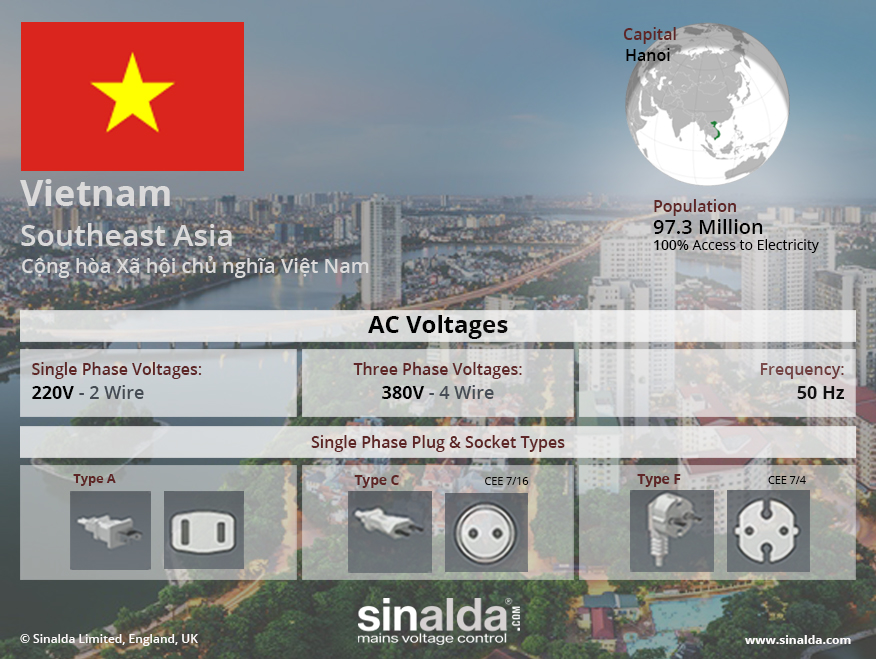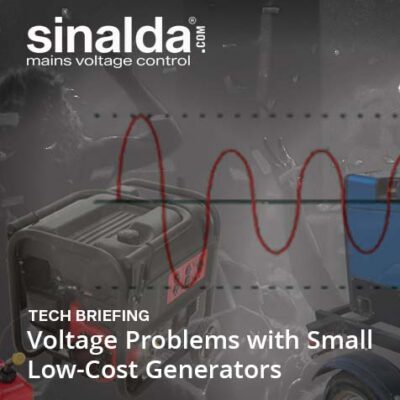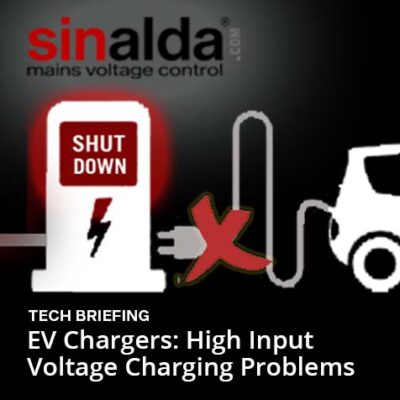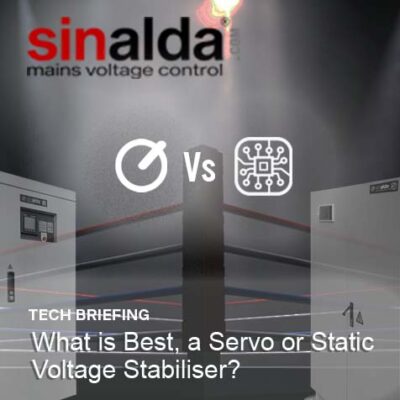Last Updated: 01 November 2021

Copyright 2021 Sinalda. Permission to use this image is granted subject to appropriate credit being given to www.sinalda.com as the source.
Power Quality in Vietnam
Vietnam is one of the fastest-growing economies in Southeast Asia, and the reliability of its electricity supply network has played a crucial role in supporting this growth.
Power Sector in Vietnam
The electricity supply network in Vietnam is managed by the state-owned utility, Vietnam Electricity (EVN), which is responsible for generating, transmitting, and distributing electricity across the country.
The electricity supply network in Vietnam is generally reliable, with a national electrification rate of around 98%. The country has made significant investments in its power infrastructure, including constructing new power plants and transmission lines, to ensure a reliable electricity supply to its citizens and businesses.
Vietnam has made significant progress in developing its renewable energy sources, particularly solar and wind power. The country has set ambitious targets to increase the share of renewable energy in its energy mix, aiming for 10% by 2030 and 20% by 2045. The government has also introduced a feed-in tariff scheme to encourage investment in renewable energy projects. It has implemented policies to support renewable energy development, such as simplifying licensing procedures.
Despite these positive developments, Vietnam still faces challenges in ensuring a reliable and sustainable electricity supply. The country’s reliance on coal-fired power plants, which account for around 40% of its electricity generation, has led to concerns about air pollution and greenhouse gas emissions. The country also experiences occasional power outages, particularly during periods of high demand, which can impact businesses and daily life.
Additionally, there are concerns about the financial sustainability of EVN, which has faced significant debt in recent years due to its investment in new power infrastructure. This debt has led to concerns about the reliability of the electricity supply network in the long term and the potential for increased electricity prices.
To address these challenges, Vietnam is taking steps to increase the efficiency of its electricity sector and reduce its reliance on fossil fuels. The government has introduced policies to promote energy efficiency and demand-side management, such as implementing smart grids and using energy-efficient appliances. The country is also exploring using energy storage systems and other technologies to improve the reliability of the electricity supply network.
Conclusion
In conclusion, the electricity supply network in Vietnam is generally reliable, but some challenges need to be addressed to ensure a sustainable and affordable electricity supply. The country’s ambitious targets for renewable energy and investments in new power infrastructure are positive steps towards achieving this goal. However, Vietnam must continue to prioritise the development of renewable energy sources and invest in modernising its power infrastructure to address the challenges facing its electricity sector.
Share your Views and Experiences
Every reasonable effort is made to ensure that the information provided above is accurate. No guarantees for the accuracy of the information is made.
So we are able to keep the content updated, and actual on the ground experiences can be shared with others, please feel free to contact us.







